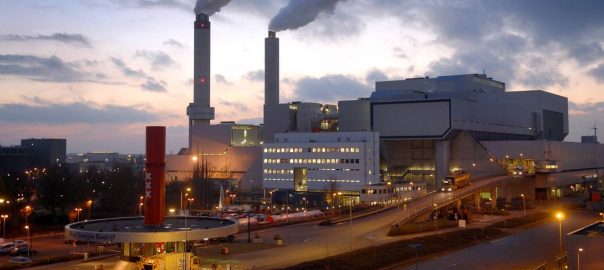The treatment of municipal solid waste (“MSW”) is difficult for local authorities. Thanks to the development of new technologies, however, MSW is becoming a serious source of renewable energy. Vietnam began to shape its regulations and policies to develop solid waste power plants (“SWPP”) in 2012. Several investment incentives and favorable policies have now been issued to attract the private sector. This Article discusses regulations on SWPPs and power purchase agreements (“PPA”).
Legislation and PPAs.
The policies and regulations are mainly set out in Decision 31/2014/QD-TTg of the Prime Minister dated May 5, 2014 (“Decision 31”), Circular 32/2015/TT-BCT of the Ministry of Industry and Trade (“MOIT”) dated October 8, 2015 (“Circular 32”) and Decree 118/2015/ND-CP of the Government dated November 12, 2015 (“Decree 181”). According to Decision 31, the Group of Vietnam Electricity (briefly called EVN)–a state-owned corporation–is responsible to purchase the entire output of electricity generated from SWPPs. This policy assures investors that output can be sold. The sales, however, must be made according to a statutory PPA template set out in Circular 32. Although Circular 32 allows the contracting parties to change the template in order to reflect their agreement, the main contents must be consistent with the template.
Price factors.
The price, of course, is a fundamental factor for the investor to make its investment decision. The price of electricity can vary widely, depending on the method of power generation. For example, the current price of electricity generated from direct combustion of solid waste is US$10.05 cents per kWh. By contrast, the current price of electricity that power plants using gas generated from gasification can charge is only US$7.28 cents per kWh. These prices exclude VAT. Interestingly, prices can be adjusted by reference to the VND-US$ exchange rate. Recognition of exchange rate variation is a large assurance for foreign investors as it mitigates losses or risks resulting from devaluation of the Vietnamese dong during the project life. In addition to the price of electricity billable to EVN, a power plant that qualifies for financial benefits under the Clean Development Mechanism (“CDM”) pursuant to the Kyoto Protocol of which Vietnam is a signatory, has yet another source of income.
Term of PPA.
The term of the PPA is 20 years commencing from the date on which the commercial operation begins. Oddly, it is uncertain whether the PPA can be renewed after its expiry. A large-scale SWPP will often require a substantial amount of capital. The question whether the price is sufficient to recover the investment capital and to earn reasonable profits within a 20-year period requires careful consideration and assessment. The investor should seek the MOIT’s consent to extend the term of the PPA if there are any concerns and questions relating to the payback period. Agreement on extension of the term should be incorporated into the PPA.
The seller (power plant) may decide to participate in the competitive market for the generation of electricity. In such case, the seller must send a 120-day notice to EVN, and the PPA will be terminated after the 120-day period. If so, the seller and EVN will then need to enter into other contractual arrangements under which the price of electricity will be determined on a competitive basis (not based on a fixed price).
A PPA can also be terminated following a force majeure event if the condition lasts for more than one year. Thus, the concept of a “force majeure event” should be well-defined.
Settlement of disputes.
A dispute must first be addressed through amicable negotiation. If the contracting parties fail to reach an agreement, the dispute can be referred to the Electricity Regulatory Authority (“ERA”) or to a body agreed by the contracting parties. The PPA relates to EVN, a state-owned corporation under the MOIT’s administration. The ERA is also a state body controlled and managed by the MOIT. In case of a dispute, the ERA’s independence may be compromised. It may be impractical for the contracting parties to choose an independent body at the time of a dispute. The choice of independent arbitration at the outset seems to be more practical.
Governing law.
The PPA is governed by Vietnamese law. Although Vietnamese law provides certain protections and guarantees, these statutory protections may be seen to be insufficient if the PPA relates to foreign investors. It is common that foreign investors will seek other contractual protections. These contractual protections can be incorporated into the PPA in order to ensure that their interests are protected. As the PPA involves state-related entities, a private owner of an SWPP should consider and incorporate the following matters into the PPA: (i) waiver of sovereign immunity; (ii) protection against changes in the law; (iii) investment incentives; (iv) government’s guarantee; (v) government’s force majeure events; (vi) subsequent increases of price (if possible); (vii) optional renewal of PPA after its expiry (if desirable); (viii) settlement of disputes through an independent body.
Investment incentives.
SWPPs are classified as “especially preferential projects” and so are entitled to several important incentives: exemption and reduction of land rental and land levies, favorable state loans and tax incentives (eg, import duty exemption for, say, machinery imported to create the project’s fixed assets). Import duty exemptions can also apply to materials, raw materials and semi-finished products that are unavailable in Vietnam and that must be imported. Preferential corporate income tax rates, corporate income tax reduction and tax holidays can also apply. These investment incentives can be obtained and documented during the licensing process.
Licensing process.
The municipal or provincial People’s Committees (“PC”) are authorized to issue investment registration certificates and other operational licenses to WSPPs. Before issuing licenses, the PC will often consult with other ministries (mainly the MOIT, the Ministry of Natural Resources and Environment and the Ministry of Science and Technology). Among other conditions, a solid waste power project must be included in the national master plan. If a potential project is not included in the national master plan, the investor must seek the MOIT’s consent. The MOIT is authorized to evaluate solid waste power projects. The statutory duration for the MOIT to evaluate a project is 30 business days. The MOIT may engage independent and professional consultants to evaluate a SWPP. The owner of an approved SWPP can commence construction of its plant only after it has obtained a construction permit. This requirement applies to most power projects, and not just to SWPPs.
*****
Currently, household waste, commercial and industrial and hospital wastes are collected and transported by non-profit entities owned by the state or by commercial companies. The current treatment of solid waste is mostly to recycle it or to discharge it into open garbage dumps. However, the volume of solid waste has increased in both big cities and industrial zones. As a result, garbage dumps have become overloaded and the current practice has become inappropriate. There are serious environmental issues to consider (eg, negative impact on underground or surface water, spread of disease, unsustainable usage of land, etc.). The situation requires local authorities to find alternative solutions in order to mange and treat waste. Although the development of SWPPs is more expensive in comparison with other methods, there are positive factors: treatment of waste is faster, it does not require a substantial amount of land, and the operating costs are not significant. More importantly, waste can be managed and treated on a sustainable basis and environmental issues can be managed. The Government is seeking technical and financial assistance and aid from government and non-government organizations. In parallel, the Government also encourages the private sector to develop SWPPs. Another option is the development of small scale SWPPs. This seems to be practical and realistic. For the investor, a small scale plant does not require a large amount of investment capital. For the Government, it will help Vietnam to learn important technologies and to gain valuable experience.



